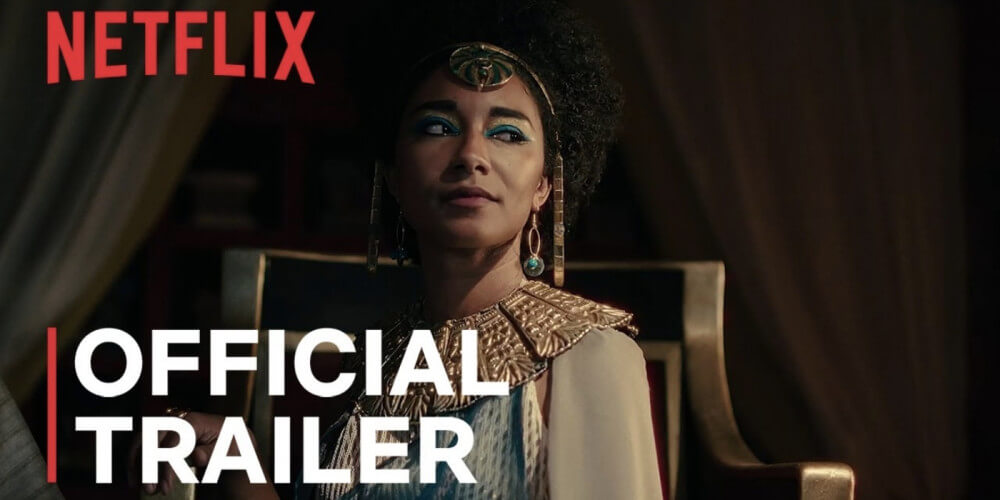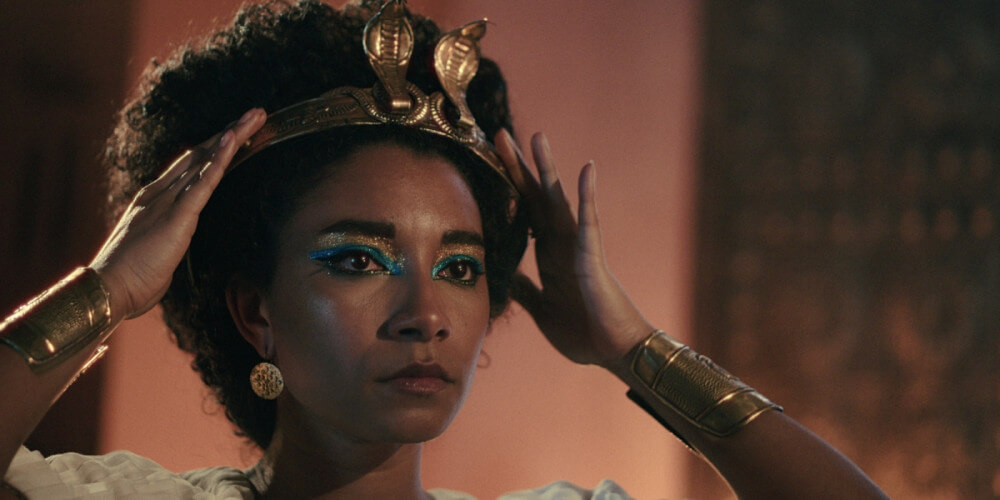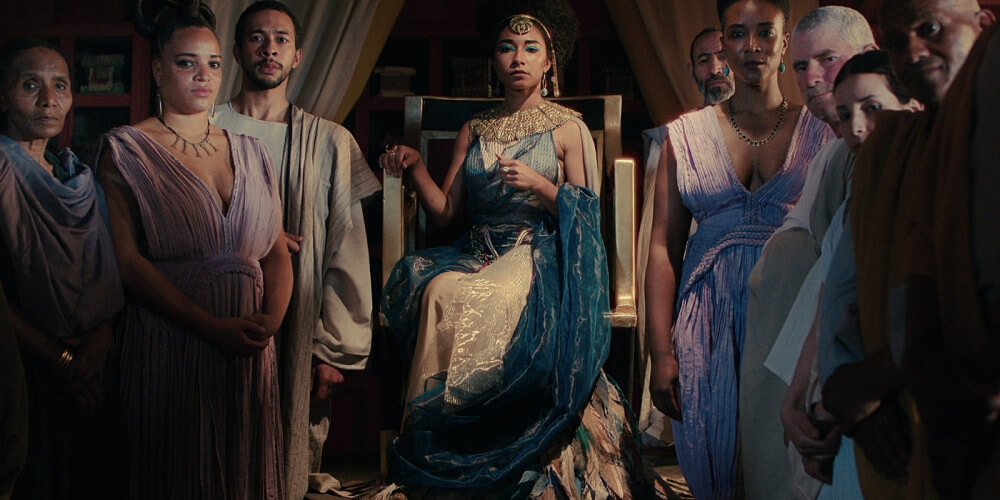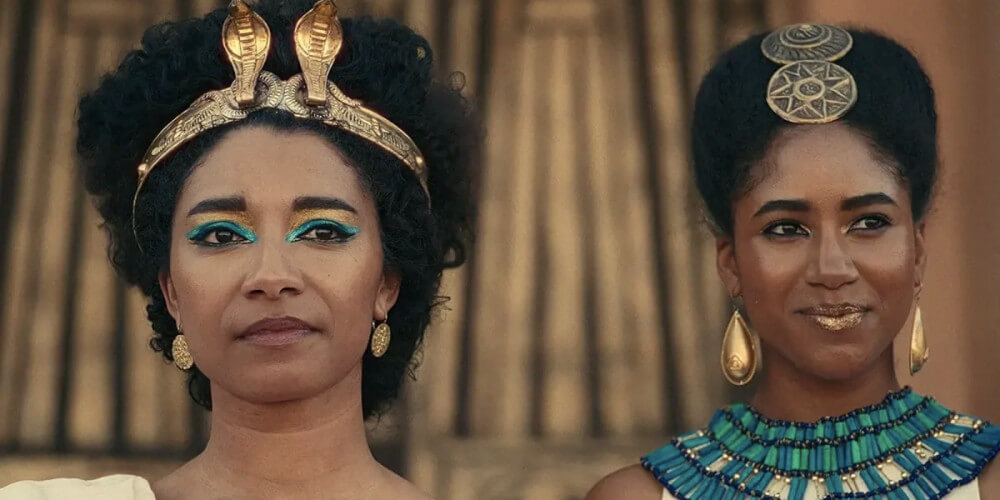Why Was Netflix Sued For Cleopatra? Everything You Need To Know
Netflix sued for Cleopatra: this is the headline that has been making waves in the media world lately. But what is behind this legal dispute and why does it matter? In this blog post, we will explore the controversy surrounding the Netflix documentary “Queen Cleopatra”, which depicts the ancient Egyptian ruler as a Black woman. We will also examine how this portrayal affects the historical debate on Cleopatra’s race, and how it reflects the broader issues of representation and diversity in media.
By the end of this post, you will have a better understanding of the reasons and implications of Netflix being sued for Cleopatra, and why this topic is relevant and important for anyone interested in history, culture, and media.
The legal dispute over Netflix’s depiction of Cleopatra as a Black woman started when an Egyptian lawyer named Mahmoud al-Semary filed a lawsuit with the public prosecutor on April 20, 2023. He accused the streaming giant of trying to “erase the Egyptian identity” and “distort history” by portraying the ancient Egyptian ruler as a Black woman in the documentary series “Queen Cleopatra”, which is set to premiere on May 10, 2023.
Al-Semary claimed that Netflix’s portrayal of Cleopatra contradicts the historical evidence and the consensus of most scholars, who believe that Cleopatra was of Macedonian descent and likely fair-skinned. He also argued that Netflix’s show violates the Islamic and societal values and principles of Egypt, and promotes the Afrocentric thinking that aims to undermine and erase the Egyptian identity.
As a result, al-Semary demanded that Netflix be shut down in Egypt and that the makers of the show be penalized for their alleged forgery and deception. He also called on the Egyptian authorities and institutions to take legal action against Netflix and to protect the Egyptian heritage and identity from any distortion or falsification.
Al-Semary’s lawsuit has sparked a lot of controversy and debate in Egypt and around the world. It raises questions about the accuracy and authenticity of Netflix’s portrayal of Cleopatra, as well as the implications and consequences of such a portrayal for Netflix and its viewers. Some people have supported al-Semary’s lawsuit and agreed with his arguments. In contrast, others have criticized him for being intolerant and ignorant of the diversity and complexity of Cleopatra’s ancestry and identity.
One of the reasons why Netflix is being sued for Cleopatra is because its depiction of the queen as a Black woman clashes with the historical debate on Cleopatra’s race. This has been going on for centuries among historians, scholars, and experts. There are different opinions and perspectives on Cleopatra’s ethnicity and appearance, based on various sources of evidence and interpretation.
The most common view is that Cleopatra was of ”Macedonian Greek ancestry and likely fair-skinned. This is because she was a descendant of the Ptolemaic dynasty, which was founded by one of Alexander the Great’s generals, Ptolemy I Soter. This view is supported by Cleopatra’s official coinage and portrait busts. This shows her with Greek features and style. Some scholars also argue that Cleopatra’s mother was also a Ptolemaic princess, and that there was no intermarriage with native Egyptians or other ethnic groups in her family tree.
However, some scholars challenge this view and suggest that Cleopatra may have had additional ancestries, such as Persian, Sogdian Iranian, or African . They point out that the Ptolemaic dynasty was not ethnically pure, and that some of its members may have married local women or concubines from different regions. They also note that Cleopatra’s mother is unknown, and that she could have been an Egyptian or a Nubian woman. Some scholars also argue that Cleopatra’s appearance may have varied depending on the context and the audience, and that she may have adopted different styles and symbols to appeal to different cultures.
Netflix’s portrayal of Cleopatra as a Black woman influences or challenges the historical debate and the popular perception of the queen in several ways. On one hand, it could be seen as a way of representing a possible aspect of Cleopatra’s identity that has been overlooked or marginalized by mainstream history and media. It could also be seen as a way of celebrating the diversity and complexity of Cleopatra’s ancestry and culture, and of highlighting the stories of Black queens and women in history.
On the other hand, it could be seen as a way of distorting or erasing the historical evidence and consensus that supports Cleopatra’s Macedonian Greek ancestry and appearance. It could also be seen as a way of imposing a modern political agenda or perspective on an ancient figure and context, and of ignoring or disrespecting the Egyptian identity and heritage.
Netflix’s lawsuit for Cleopatra is not an isolated case, but rather a reflection of the broader issues of representation and diversity in media, especially in relation to historical figures and cultures. Representation and diversity refer to the extent to which media content reflects the diversity of identities, experiences, and perspectives of different groups and individuals in society, such as those based on gender, race/ethnicity, LGBTQ+, disability, religion, age, class, etc.
Representation and diversity are important for media consumers and producers. The reason is that they can affect social justice, cultural awareness, and education. For media consumers, representation and diversity can provide opportunities to see themselves and their stories reflected on screen. Moreover, they can learn about and empathize with others who are different from them. For media producers, representation and diversity can enhance creativity, innovation, and authenticity, as well as expand their audience reach and appeal.
However, representation and diversity are also challenging and complex. This is because they involve multiple factors and considerations. For example: accuracy, authenticity, stereotypes, biases, power dynamics, cultural sensitivity, artistic freedom, etc. Media producers often face criticism and controversy for their choices and portrayals of different groups and identities. Especially when they deal with historical figures and cultures that have multiple interpretations and implications.
Netflix is no stranger to such criticism and controversy. This means that it has been accused of whitewashing, and blackwashing. Or misrepresenting certain groups or identities in some of its shows or movies. For example:
These examples show that Netflix has both successes and failures when it comes to representation and diversity in media. Netflix has made some progress and efforts to improve its inclusion and representation across its content portfolio. However, it still has room for improvement and growth. Netflix’s lawsuit for Cleopatra is another opportunity for Netflix to learn from its mistakes and challenges. Besides, they can strive for better representation and diversity in media.
In this blog post, we have explored the controversy surrounding Netflix’s documentary “Queen Cleopatra”. The movie depicts the ancient Egyptian ruler as a Black woman. We have also examined how this portrayal affects the historical debate on Cleopatra’s race. In addition, how it reflects the broader issues of representation and diversity in media. By doing so, we have gained a better understanding of the reasons and implications of Netflix being sued for Cleopatra. Why this topic is relevant and important for anyone interested in history, culture, and media.
Thank you for reading this blog post. To discover more Entertainment, movies, news, celebrities, and funny stories, visit our homepage at Aubtu.biz.
By the end of this post, you will have a better understanding of the reasons and implications of Netflix being sued for Cleopatra, and why this topic is relevant and important for anyone interested in history, culture, and media.
#1. Why Was Netflix Sued for Cleopatra?
 Source: Netflix
Source: Netflix
The legal dispute over Netflix’s depiction of Cleopatra as a Black woman started when an Egyptian lawyer named Mahmoud al-Semary filed a lawsuit with the public prosecutor on April 20, 2023. He accused the streaming giant of trying to “erase the Egyptian identity” and “distort history” by portraying the ancient Egyptian ruler as a Black woman in the documentary series “Queen Cleopatra”, which is set to premiere on May 10, 2023.
Al-Semary claimed that Netflix’s portrayal of Cleopatra contradicts the historical evidence and the consensus of most scholars, who believe that Cleopatra was of Macedonian descent and likely fair-skinned. He also argued that Netflix’s show violates the Islamic and societal values and principles of Egypt, and promotes the Afrocentric thinking that aims to undermine and erase the Egyptian identity.
As a result, al-Semary demanded that Netflix be shut down in Egypt and that the makers of the show be penalized for their alleged forgery and deception. He also called on the Egyptian authorities and institutions to take legal action against Netflix and to protect the Egyptian heritage and identity from any distortion or falsification.
Al-Semary’s lawsuit has sparked a lot of controversy and debate in Egypt and around the world. It raises questions about the accuracy and authenticity of Netflix’s portrayal of Cleopatra, as well as the implications and consequences of such a portrayal for Netflix and its viewers. Some people have supported al-Semary’s lawsuit and agreed with his arguments. In contrast, others have criticized him for being intolerant and ignorant of the diversity and complexity of Cleopatra’s ancestry and identity.
#2. How Netflix Sued for Cleopatra Affects the Historical Debate on Cleopatra’s Race
 Source: Los Angeles Times
Source: Los Angeles Times
One of the reasons why Netflix is being sued for Cleopatra is because its depiction of the queen as a Black woman clashes with the historical debate on Cleopatra’s race. This has been going on for centuries among historians, scholars, and experts. There are different opinions and perspectives on Cleopatra’s ethnicity and appearance, based on various sources of evidence and interpretation.
The most common view is that Cleopatra was of ”Macedonian Greek ancestry and likely fair-skinned. This is because she was a descendant of the Ptolemaic dynasty, which was founded by one of Alexander the Great’s generals, Ptolemy I Soter. This view is supported by Cleopatra’s official coinage and portrait busts. This shows her with Greek features and style. Some scholars also argue that Cleopatra’s mother was also a Ptolemaic princess, and that there was no intermarriage with native Egyptians or other ethnic groups in her family tree.
Also trending: Beau Is Afraid Attic Scene: The Most Shocking Moment In Horror Cinema
However, some scholars challenge this view and suggest that Cleopatra may have had additional ancestries, such as Persian, Sogdian Iranian, or African . They point out that the Ptolemaic dynasty was not ethnically pure, and that some of its members may have married local women or concubines from different regions. They also note that Cleopatra’s mother is unknown, and that she could have been an Egyptian or a Nubian woman. Some scholars also argue that Cleopatra’s appearance may have varied depending on the context and the audience, and that she may have adopted different styles and symbols to appeal to different cultures.
Netflix’s portrayal of Cleopatra as a Black woman influences or challenges the historical debate and the popular perception of the queen in several ways. On one hand, it could be seen as a way of representing a possible aspect of Cleopatra’s identity that has been overlooked or marginalized by mainstream history and media. It could also be seen as a way of celebrating the diversity and complexity of Cleopatra’s ancestry and culture, and of highlighting the stories of Black queens and women in history.
On the other hand, it could be seen as a way of distorting or erasing the historical evidence and consensus that supports Cleopatra’s Macedonian Greek ancestry and appearance. It could also be seen as a way of imposing a modern political agenda or perspective on an ancient figure and context, and of ignoring or disrespecting the Egyptian identity and heritage.
#3. How Netflix Sued for Cleopatra Reflects the Broader Issues of Representation and Diversity in Media
 Source: Radio Times
Source: Radio Times
Netflix’s lawsuit for Cleopatra is not an isolated case, but rather a reflection of the broader issues of representation and diversity in media, especially in relation to historical figures and cultures. Representation and diversity refer to the extent to which media content reflects the diversity of identities, experiences, and perspectives of different groups and individuals in society, such as those based on gender, race/ethnicity, LGBTQ+, disability, religion, age, class, etc.
Representation and diversity are important for media consumers and producers. The reason is that they can affect social justice, cultural awareness, and education. For media consumers, representation and diversity can provide opportunities to see themselves and their stories reflected on screen. Moreover, they can learn about and empathize with others who are different from them. For media producers, representation and diversity can enhance creativity, innovation, and authenticity, as well as expand their audience reach and appeal.
However, representation and diversity are also challenging and complex. This is because they involve multiple factors and considerations. For example: accuracy, authenticity, stereotypes, biases, power dynamics, cultural sensitivity, artistic freedom, etc. Media producers often face criticism and controversy for their choices and portrayals of different groups and identities. Especially when they deal with historical figures and cultures that have multiple interpretations and implications.
Also trending: Dead Ringers 2023 Ending Explained: The Shocking Twist Of The Twin Swap
Netflix is no stranger to such criticism and controversy. This means that it has been accused of whitewashing, and blackwashing. Or misrepresenting certain groups or identities in some of its shows or movies. For example:
- In 2017, Netflix faced backlash for its adaptation of Death Note, a Japanese manga series. The movie cast white actors as the main characters who were originally Asian.
- In 2018, Netflix was criticized for its film The Princess Switch. This movie featured a fictional European country called Belgravia that had no people of color.
- In 2019, Netflix sparked controversy for its series Messiah. The movie depicted a Middle Eastern man who claimed to be the second coming of Jesus Christ. Some accused the show of being Islamophobic or anti-Semitic.
- In 2020, Netflix received mixed reactions for its film The Old Guard. This movie starred Charlize Theron as an immortal warrior. He was originally a Black woman in the comic book source material.
- In 2021, Netflix was slammed for its series Ginny & Georgia. This movie was accused of perpetuating stereotypes and racism against Asian Americans.
These examples show that Netflix has both successes and failures when it comes to representation and diversity in media. Netflix has made some progress and efforts to improve its inclusion and representation across its content portfolio. However, it still has room for improvement and growth. Netflix’s lawsuit for Cleopatra is another opportunity for Netflix to learn from its mistakes and challenges. Besides, they can strive for better representation and diversity in media.
#4. Netflix Sued for Cleopatra: Conclusion
 Source: What's on Netflix
Source: What's on Netflix
In this blog post, we have explored the controversy surrounding Netflix’s documentary “Queen Cleopatra”. The movie depicts the ancient Egyptian ruler as a Black woman. We have also examined how this portrayal affects the historical debate on Cleopatra’s race. In addition, how it reflects the broader issues of representation and diversity in media. By doing so, we have gained a better understanding of the reasons and implications of Netflix being sued for Cleopatra. Why this topic is relevant and important for anyone interested in history, culture, and media.
Thank you for reading this blog post. To discover more Entertainment, movies, news, celebrities, and funny stories, visit our homepage at Aubtu.biz.
Share this article
Advertisement